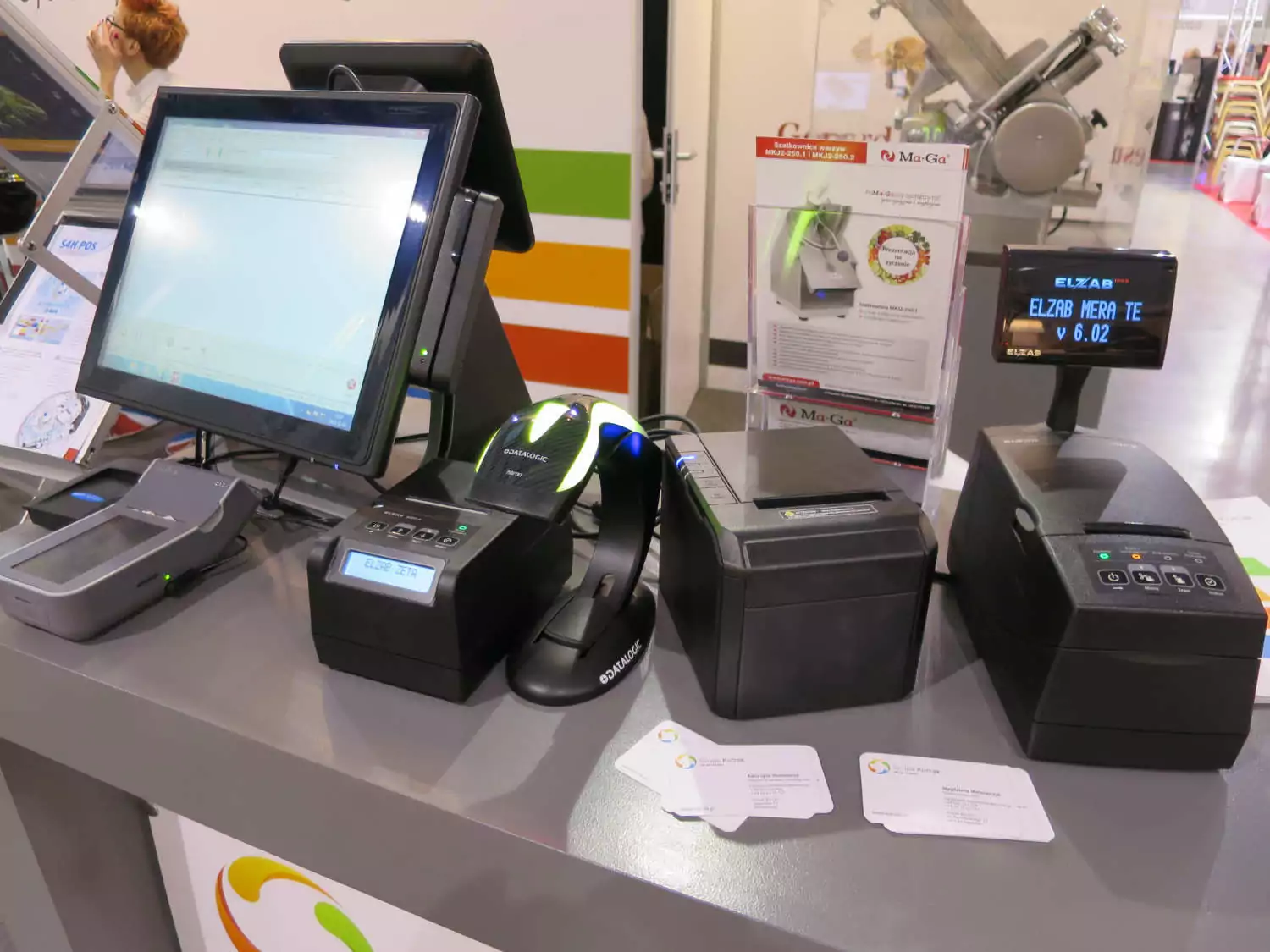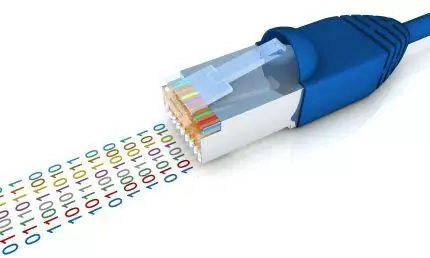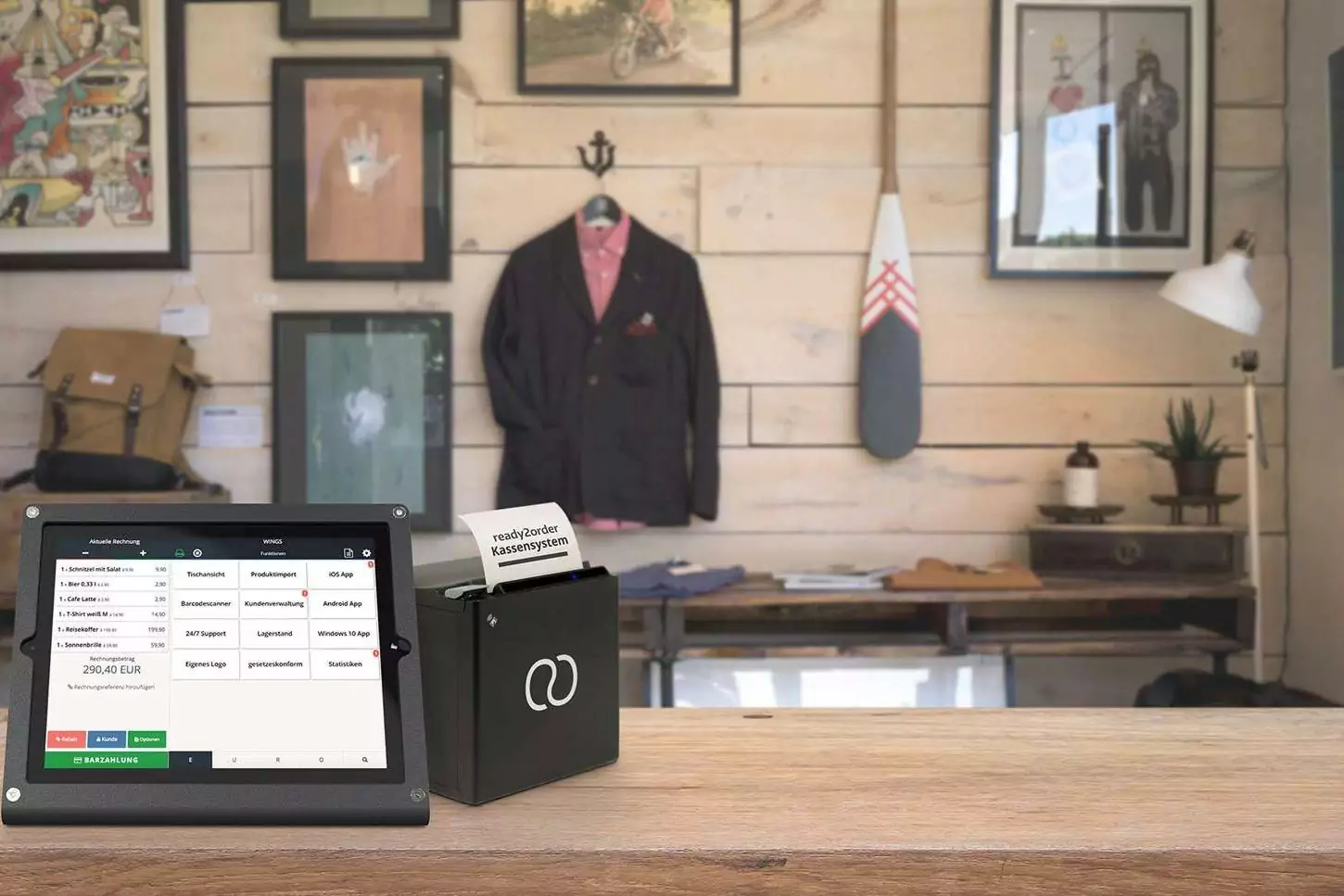Information systems
7. September 2022
Definition and overview for the use of digital twins in logistics
A digital twin is the image of a real object or process in virtual/digital space. In this type of…
9. February 2021
Definition of the software principle ‘clean architecture’
Clean architecture' is an IT application implementation style. At the heart of clean architecture…
1. February 2021
Definition and advantages of context-aware frontend architecture
Reasons for context-aware frontend architecture User interfaces must meet more and more diverse…
12. October 2020
What is Business Intelligence – structure, requirements, advantages and disadvantages
Business Intelligence - Definition Traditionally, Business Intelligence (BI) is a collective term…
7. May 2020
Radio Frequency Identification (RFID)
Radio Frequency Identification (RFID) is a technology for the unambiguous and contact-free…
13. November 2019
Adaptive IT in intralogistics as a tool for digital transformation
Adaptive IT describes a modular system for modelling software. Individual software components can…
28. March 2019
Enterprise Resource Planning – the five most important questions when choosing an ERP system
An Enterprise Resource Planning System (ERP for short) is used in many different sized companies.…
15. January 2019
Artificial intelligence (AI) and logistics
Artificial Intelligence (AI) can be defined as intelligence that originates exclusively from…
7. November 2018
Inventory in companies and in logistics
In the inventory, the assets of a company are determined on a key date; in this way, assets and…
31. July 2018
Point of sale systems, warehouse management and branch logistics
A cash register system, also known as a POS system, is software that documents a specific financial…
20. June 2018
Cyber-physical systems and logistics
Cyber-physical systems, or CPS for short, are system units or components that are linked together…
8. January 2018
CPFR – Collaborative Planning, Forecasting and Replenishment
CPFR stands for Collaborative Planning, Forecasting and Replenishment and is a further development…
5. December 2017
Networked Production: Computer-integrated Manufacturing
Computer-integrated manufacturing, or CIM for short, stands for computer-controlled machine and…
28. November 2017
At a glance: the enterprise resource planning system
An enterprise resource planning system is a software that ensures a smooth flow of commercial…
25. September 2017
Human-machine interfaces in the industry
The human-machine interface represents the analog or digital interaction interface between a…
12. September 2017
The picking method Pick-by-Vision
Pick-by-Vision is a picking process in which a picker uses data glasses and context-related…
1. August 2017
Product Lifecycle Management (PLM)
The term Product Lifecycle Management, PLM for short, describes a holistic approach to pooling…
18. July 2017
The control center in intralogistics
The control panel in intralogistics represents a central point of a warehouse management system and…
19. June 2017
Augmented Reality in logistics and service
Augmented Reality (AR) describes the computer-aided extension of human perception of reality. From…
23. May 2017
Smart Data
Smart Data stands for the detailed and structured result of an analysis of unstructured data masses…
18. April 2017
Key figure system in intralogistics
Although a complete bundling of all key figures arising in warehouse and distribution systems is…
22. March 2017
Order picking times – Dead time
Dead time is an unproductive but unavoidable so-called auxiliary time, which arises during picking…
23. February 2017
Advantages of RFID technology over barcodes
What advantages does RFID radio technology have over barcodes? This question has also been on the…
1. February 2017
Perfect Order Fulfillment
The so-called Perfect Order Fulfillment stands for the perfect degree of fulfillment of the…
17. October 2016
Swarm intelligence – What we logisticians can learn from ants – Part I
Surely you use a navigation system. So then you are already relying on the performance of ants and…
19. September 2016
Distributed Order Management
Distributed Order Management basically the consideration of all companies involved in an order as…
2. June 2016
E-Commerce: the online marketplace
E-commerce, or electronic commerce, is the term for electronic commerce on the Internet. The…
25. April 2016
Definition – WMS – The Warehouse Management System
The Warehouse Management System (WMS) is an indispensable software for the control and…
7. April 2016
CMR: the consignment note
The term CMR comes from the French, Convention relative au Contrat de transport international de…
1. December 2015
The degree of utilisation/the capacity utilisation
The degree of capacity utilisation describes the proportion of the capacity used by…
2. November 2015
Definition of Accounting / Bookkeeping
The term accounting describes the comprehensive recording, storage and analysis or evaluation of…
21. September 2015
Information in intralogistics
Information describes the meaningful content of a message, which is of value for the recipient. The…
26. August 2015
Host system (ERP system)
The host system (usually an ERP system) is a central data processing system that can be accessed…
23. February 2015
The barcode – EAN, GTIN and GS1 standard
Barcodes have successfully established themselves over other systems in recent years. The barcode…
8. January 2015
Temperature-controlled logistics (environmental measurement)
The market for temperature-controlled logistics in particular has been growing in volume over the…
2. December 2014
Overview and definition of ident carriers
In order to be able to identify an object without any doubt throughout the entire logistics chain,…
16. September 2014
Data Mart: the local warehouse database analysis
Data mart describes the use of a database that is only a department-specific part of the overall…
12. July 2013
Enterprise Resource Planning System (ERP System)
As an application program, an enterprise resource planning system (ERP system) supports all task…
12. July 2013
Overview of application interfaces (APIs)
Interfaces have the task of connecting IT systems with the environment, i.e. other facilities,…
10. July 2013
Inventory management
Inventory management refers to the administration, planning and control of material flows within a…
24. June 2013
Storage location management – The importance of EDP in warehouse organization
In modern warehouses with a certain amount of goods, the warehouse processes are usually…
7. September 2022
Definition and overview for the use of digital twins in logistics
A digital twin is the image of a real object or process in virtual/digital space. In this type of…
9. February 2021
Definition of the software principle ‘clean architecture’
Clean architecture' is an IT application implementation style. At the heart of clean architecture…
1. February 2021
Definition and advantages of context-aware frontend architecture
Reasons for context-aware frontend architecture User interfaces must meet more and more diverse…
12. October 2020
What is Business Intelligence – structure, requirements, advantages and disadvantages
Business Intelligence - Definition Traditionally, Business Intelligence (BI) is a collective term…
7. May 2020
Radio Frequency Identification (RFID)
Radio Frequency Identification (RFID) is a technology for the unambiguous and contact-free…
13. November 2019
Adaptive IT in intralogistics as a tool for digital transformation
Adaptive IT describes a modular system for modelling software. Individual software components can…
28. March 2019
Enterprise Resource Planning – the five most important questions when choosing an ERP system
An Enterprise Resource Planning System (ERP for short) is used in many different sized companies.…
15. January 2019
Artificial intelligence (AI) and logistics
Artificial Intelligence (AI) can be defined as intelligence that originates exclusively from…
7. November 2018
Inventory in companies and in logistics
In the inventory, the assets of a company are determined on a key date; in this way, assets and…
31. July 2018
Point of sale systems, warehouse management and branch logistics
A cash register system, also known as a POS system, is software that documents a specific financial…
20. June 2018
Cyber-physical systems and logistics
Cyber-physical systems, or CPS for short, are system units or components that are linked together…
8. January 2018
CPFR – Collaborative Planning, Forecasting and Replenishment
CPFR stands for Collaborative Planning, Forecasting and Replenishment and is a further development…
5. December 2017
Networked Production: Computer-integrated Manufacturing
Computer-integrated manufacturing, or CIM for short, stands for computer-controlled machine and…
28. November 2017
At a glance: the enterprise resource planning system
An enterprise resource planning system is a software that ensures a smooth flow of commercial…
25. September 2017
Human-machine interfaces in the industry
The human-machine interface represents the analog or digital interaction interface between a…
12. September 2017
The picking method Pick-by-Vision
Pick-by-Vision is a picking process in which a picker uses data glasses and context-related…
1. August 2017
Product Lifecycle Management (PLM)
The term Product Lifecycle Management, PLM for short, describes a holistic approach to pooling…
18. July 2017
The control center in intralogistics
The control panel in intralogistics represents a central point of a warehouse management system and…
19. June 2017
Augmented Reality in logistics and service
Augmented Reality (AR) describes the computer-aided extension of human perception of reality. From…
23. May 2017
Smart Data
Smart Data stands for the detailed and structured result of an analysis of unstructured data masses…
18. April 2017
Key figure system in intralogistics
Although a complete bundling of all key figures arising in warehouse and distribution systems is…
22. March 2017
Order picking times – Dead time
Dead time is an unproductive but unavoidable so-called auxiliary time, which arises during picking…
23. February 2017
Advantages of RFID technology over barcodes
What advantages does RFID radio technology have over barcodes? This question has also been on the…
1. February 2017
Perfect Order Fulfillment
The so-called Perfect Order Fulfillment stands for the perfect degree of fulfillment of the…
17. October 2016
Swarm intelligence – What we logisticians can learn from ants – Part I
Surely you use a navigation system. So then you are already relying on the performance of ants and…
19. September 2016
Distributed Order Management
Distributed Order Management basically the consideration of all companies involved in an order as…
2. June 2016
E-Commerce: the online marketplace
E-commerce, or electronic commerce, is the term for electronic commerce on the Internet. The…
25. April 2016
Definition – WMS – The Warehouse Management System
The Warehouse Management System (WMS) is an indispensable software for the control and…
7. April 2016
CMR: the consignment note
The term CMR comes from the French, Convention relative au Contrat de transport international de…
1. December 2015
The degree of utilisation/the capacity utilisation
The degree of capacity utilisation describes the proportion of the capacity used by…
2. November 2015
Definition of Accounting / Bookkeeping
The term accounting describes the comprehensive recording, storage and analysis or evaluation of…
21. September 2015
Information in intralogistics
Information describes the meaningful content of a message, which is of value for the recipient. The…
26. August 2015
Host system (ERP system)
The host system (usually an ERP system) is a central data processing system that can be accessed…
23. February 2015
The barcode – EAN, GTIN and GS1 standard
Barcodes have successfully established themselves over other systems in recent years. The barcode…
8. January 2015
Temperature-controlled logistics (environmental measurement)
The market for temperature-controlled logistics in particular has been growing in volume over the…
2. December 2014
Overview and definition of ident carriers
In order to be able to identify an object without any doubt throughout the entire logistics chain,…
16. September 2014
Data Mart: the local warehouse database analysis
Data mart describes the use of a database that is only a department-specific part of the overall…
12. July 2013
Enterprise Resource Planning System (ERP System)
As an application program, an enterprise resource planning system (ERP system) supports all task…
12. July 2013
Overview of application interfaces (APIs)
Interfaces have the task of connecting IT systems with the environment, i.e. other facilities,…
10. July 2013
Inventory management
Inventory management refers to the administration, planning and control of material flows within a…
24. June 2013
Storage location management – The importance of EDP in warehouse organization
In modern warehouses with a certain amount of goods, the warehouse processes are usually…







































































